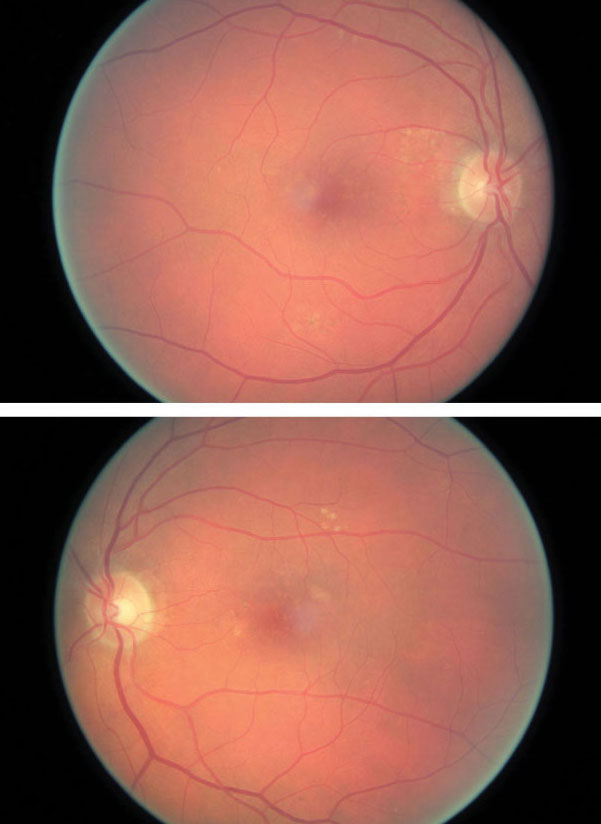 |
Patients taking antidepressants were more likely to have worse rod-mediated dark adaptation and scotopic light sensitivity than those not on the medication. Click image to enlarge. |
Previous research has suggested that serotonin modulates the activity of rods but not cones. With an increasing number of individuals taking antidepressants, it’s important to understand how these drugs can potentially affect various visual functions. A team of researchers recently performed the first study investigating the potential association between antidepressant use and visual function in older adults with macular degeneration. Their findings, presented last Thursday at ARVO in New Orleans, suggest rods are impacted by neurotransmitters altered by antidepressants (e.g., serotonin), while no effects of the drug were observed on cone or cone- and rod-mediated visual function.
The study looked at 500 patients with early or intermediate AMD, including 106 patients with self-reported antidepressant use and 394 who reported not taking the medication. At baseline, researchers performed visual function testing in one eye, including best-corrected visual acuity, contrast sensitivity, light sensitivity and rod-mediated dark adaptation (RMDA) at 5° and 12° quantified by rod-intercept time. Age-related macular degeneration was classified using the AREDS nine-step system. Using logistic regression adjusted for age and AMD severity, the researchers calculated an odds ratio for each visual function among antidepressant users vs. non-users.
Compared with participants not on antidepressants, those taking the medication were two-times as likely to have worse RMDA at 5° and 2.3-times as likely to have worse scotopic light sensitivity. However, on all other tests performed, the researchers found no association between antidepressant use and worse function.
“Among older adults in normal macular health and with early or intermediate AMD, antidepressant use was associated with worse rod-mediated visual functions but not those based on cones only or both rods and cones,” the researchers concluded in their abstract on the study. “Worse RMDA at 12° was not associated with antidepressant use, which could be due to the reduced power for the effect of delayed RMDA at this eccentricity.”
Given these findings, the team concluded that further research is needed to investigate the difference between the effect of neurotransmitters altered by antidepressants on cones vs. rods.
Original abstract content © Association for Research in Vision and Ophthalmology 2023.
Swain TA, Clark ME, Curcio CA, et al. Antidepressant medication use is associated with impaired rod-mediated visual functions in normal aging and early and intermediate AMD: ALSTAR2 baseline. ARVO 2023 annual meeting. |

